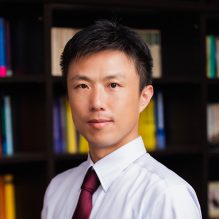-
About
- Kyoto Prize
-
Research Grants
-
News
This website uses cookies to improve the user experience. If you continue on this website, you will provide your consent to our use of cookies.
About
Research Grants
News

InaRIS Fellow (2025-)
Kyoto University Institute for Advanced Study, Kyoto UniversityProfessor*Profile is at the time of the award.
2025InaRISScience & Engineering
Science & Engineering
